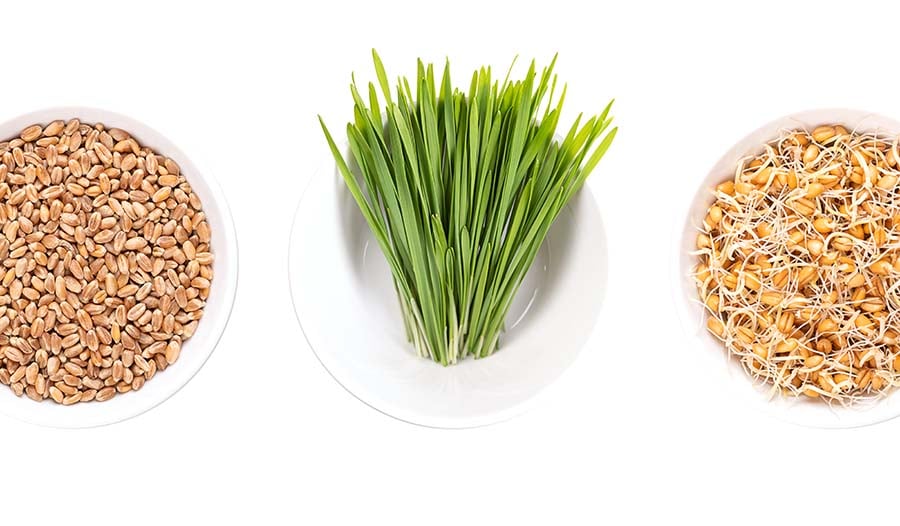Spermidin: En kraftfuld anti-aging forbindelse til at overvinde tiden

Spermidins unikke anti-aging fordele
En af de mest interessante ernæringsfaktorer til bekæmpelse af aldring er en unik aminosyre kendt som spermidin. Som navnet antyder, blev spermidin først opdaget i menneskesæd i 1678 af den berømte hollandske videnskabsmand Anton Van Leeuwenhoek, almindeligvis kendt som „Mikrobiologiens far.“ Spermidin er meget vigtigt for sædfunktionen, men det spiller også en væsentlig rolle i celler i hele kroppen.
Spermidin bekæmper aldringsprocessen gennem en række biologiske mekanismer. Men det er spermidins rolle som forstærker af en proces kaldet autofagi og funktionen af mitokondrier, de energiproducerende rum i celler, der er de nøglefaktorer, der producerer dens betydelige anti-aging effekter, som denne artikel vil diskutere.
Den praktiske anvendelse af disse effekter er at bruge en sædcellet diæt eller spermidintilskud som en anti-aging strategi.
Spermidinadministration forlænger levetiden i aldringsmodeller og dyreforsøg, uanset om det gives gennem hele deres liv eller senere i livet. Hos mennesker bidrager opretholdelse af sædcelleniveauer gennem hele levetiden for at leve længere. Blodniveauerne af spermidin og dets sædmetabolisme hos mennesker mellem 60 og 80 år var lavere end hos personer under 50 år. Alligevel er det interessant, at mennesker ældre end 90 år har niveauer, der ligner mennesker under 50 år. Denne fond indebærer en sammenhæng mellem højere sædcelleniveauer og længere levetid.
Hvad gør spermidin?
Understøtter cellulær funktion
Spermidin spiller en kritisk rolle i cellulær funktion og overlevelse. Det er nødvendigt for at aktivere nøglemolekyler involveret i:
- Cellevækst
- DNA-stabilitet
- Transskription af genetisk information
- Fremstilling af kropsproteiner
Forstærker immunforsvaret
Spermidin spiller også en væsentlig rolle i immunresponsen og antioxidantsystemet, især i beskyttelsen af membranlipider og DNA.
Aktiverer stofskifte
Derudover aktiverer spermidin en master metabolisme switch, et enzym kendt som AMP-aktiveret proteinkinase (AmpK). Aktiviteten af AmpK spiller en vigtig rolle i energimetabolismen og er også bundet til forventet levetid. Med aldring, cellulær AMPK-aktivering falder, hvilket fører til insulinresistens, nedsat leverfunktion, ophobning af abdominal (visceralt) fedt og tab af muskelmasse (sarkopeni). Aktivering af AmpK kan være en kritisk anti-aging effekt af spermidin.
Anti-Aging Equipment
Med hensyn til dets anti-aging effekter har de fleste undersøgelser imidlertid fokuseret på spermidin som en forstærker af autofagi og mitokondriel funktion.
Hvad er autofagi?
Autophagy oversættes til „selvoptagelse.“ Det er en cellulær renseproces, hvor akkumulerede affaldsprodukter leveres til rum i celler kendt som lysosomer, så de kan ødelægges og potentielt genbruges.
Autofagi er cellens kvalitetskontrolproces til bortskaffelse af cellulært affald, snavs, mikroorganismer og uønskede forbindelser samt genbrug af forbindelser, der kan reddes.
Videnskaben og betydningen af autofagi er en relativt ny opdagelse. I 2016 vandt den japanske biolog Yoshinori Ohsumi Nobelprisen i fysiologi eller medicin i 2016 for sine opdagelser af mekanismerne for autofagi.
Spermidins levetidsmæssige fordele
Forbedret autofagi er blevet fundet hos usædvanligt sunde hundredeårige mennesker og ser ud til at være et centralt mål for at leve et sundere og længere liv. Genetik spiller en rolle i autofagi, men det kan i høj grad påvirke ekspressionen af autofaggener gennem kost, livsstil og kosttilskud. Spermidin etablerer sig som en vigtig diætfaktor for at forbedre autofagifunktionen.
Spermidin forbedrer autofagi via dets handlinger på forskellige gener, der fremmer autofagi, herunder autofagi-genet (ATG5). Mennesker, der overtrykker denne gen, kan leve længere. Ekspressionen af ATG5 reduceres som reaktion på oxidativ og fri radikalskade såvel som ved reduceret mitokondriefunktion. Derfor ser spermidin ud til at påvirke virkningen af disse faktorer på undertrykkelse af autofagi.
Ud over beviser fra eksperimentelle undersøgelser, der viser, at spermidintag kan øge levetiden, er der også menneskelige undersøgelser, der viser, at et højere spermidintag er forbundet med en lavere samlet dødelighed.
Med andre ord kan højere spermidinindhold øge levetiden, hvilket betyder at leve et længere og sundere liv. Spermidin viser også et løfte om beskyttelse mod aldring, især i hjernen, hjertet, leveren, leddene og musklerne. Disse væv er især modtagelige for de skadelige virkninger af aldring. Ved at forbedre autofagi bekæmper spermidin ældning i disse væv og andre.
Nedsat autofagi fremskynder aldring ved at øge oxidativ skade. Det fører også til tab af kontrol ved opbygning af cellulære proteiner, reducerer cellulær energiproduktion ved at hæmme mitokondriefunktionen og skaber andre biokemiske udfordringer forbundet med en øget hastighed af cellulær ældning. Disse effekter rammer hvert væv i kroppen, især hjernen, da det er de mest metaboliske aktive væv. Aldringsrelaterede fald i autofagi er også ansvarlige for sarkopeni - den progressive tab af muskelmasse og styrke forbundet med ældning.
En af nøglerne til at hjælpe din krops evne til at håndtere cellulært affald er at forhindre deres dannelse og ophobning i første omgang. En tilstand af kronisk, lavgradig inflammation karakteriserer accelereret menneskelig aldring. Denne proces kaldes inflammation, og betændelse fører også til reduceret autofagi.
Der er et par betændelsesudløsere, såsom dårlig blodsukkerkontrol og mangel på vigtige diætfaktorer, der bekæmper betændelse, såsom omega-3 fedtsyrer, polyphenolrige fødevarer som bær, anden frugt, grønne grøntsager, carotenoidholdige grøntsager osv.
Ved betændelse reduceres mitokondriefunktionen primært på grund af skader og stress forårsaget af frie radikaler og pro-oxidanter. Dette fører til en større dannelse af cellulært affald i selve cellen. Derfor bruges trykket „garb-aging“ også til at beskrive virkningerne af enten vedvarende ophobning af cellulært affald, reduceret autofagi eller en kombination af begge dele. Spermidin kan hjælpe med at forhindre ældning af tøj ved at fungere som både en antioxidant og forbedre autofagi.
Fødekilder til spermidin
Spermidin findes i mange fødevarer, men i små mængder. Hvede, fuldkorn, mælkefrugter, sojabønner og svampe giver det højeste indhold. Ældre oste og gærede fødevarer er også gode kilder sammen med kylling eller oksekød.
Det anslåede daglige indtag af spermidin for voksne i USA og Europa er ca. 12,5 mg pr. Dag. Tre spiseskefulde hvedeks giver ca. 5 mg spermidin eller ca. 40% af det daglige indtag.
Ud over kostindtagelse dannes spermidin også i kroppen. En vej er gennem aminosyren ornithin via dens metabolit putrescin. Denne rute involverer omdannelse af putrescin til spermidin gennem enzymet spermidinsyntase. Spermidin kan omdannes til sædceller og omdannes tilbage til spermidin. Mens spermidin, sæd og putrescin konverteres sammen, er spermidin den dominerende og mest afgørende polyamin for human cellulær fysiologi.
Tarmbakterier kan også producere spermidin og andre polyaminer. Da ikke alle tarmbakterier producerer polyaminer, kan forskellige mikrobiomsammensætninger føre til mere gunstig spermidinproduktion. I tarmforingen har spermidin flere gavnlige virkninger, herunder øget cellulær levetid, genopretning af skadet tarmepitel og forbedret cellulær energi.
Fordele ved spermidintilskud
Spermidin tilskud er en levedygtig måde at øge spermidinindtaget på. Interessant nok, når raske frivillige indtog 15 mg spermidin dagligt, øgede det signifikante sperminniveau i blodplasma, men det påvirkede ikke spermidin- eller putrescinniveauer. Sæd transporteres i blodet til kropsvæv, hvor meget af det omdannes tilbage til spermidin. Sæd har også nogle fordele.
Ud over betydelige eksperimentelle og humane undersøgelser, der indikerer, at et højere sædindtag forhindrer aldersrelateret kognitiv tilbagegang, har der også været flere kliniske forsøg med hvedekekstrakter koncentreret til spermidinindhold, der viser positive resultater hos ældre patienter med faldende hukommelse og kognitiv funktion.
Den seneste dobbeltblinde undersøgelse fokuserede på effekten af spermidintag på 85 forsøgspersoner mellem 60 og 96 år fra 6 plejehjem. En gruppe modtog en kornrulle (rulle A), hvor hver rulle A gav 3,3 mg spermidin. Den anden gruppe modtog ruller bagt med hvedeholder i stedet for hvedekim (rulle B), som gav 1,9 mg spermidin pr. Rulle. Ud over hukommelsestesten blev der taget blodprøver til måling af sædcelleniveauer. Resultaterne viste en klar sammenhæng mellem spermidintag, blodniveauer af spermidin og forbedret kognitiv ydeevne og hukommelse. Baseret på resultaterne og blodmålingerne blev den mindste daglige dosis af spermidin, der kræves for at vise forbedring, beregnet til at være 3,3 mg (ca. to spiseskefulde hvede). Denne beslutsomhed har vist sig at være meget vigtig.
Et andet dobbeltblindt, randomiseret, placebokontrolleret pilotforsøg viste, at tre måneders spermidintilskud forhindrede hukommelsesstab hos ældre forsøgspersoner med en dosis på 1,2 mg spermidin pr. Dag. Disse bemærkelsesværdige resultater førte til et 12-måneders randomiseret kontrolleret forsøg kendt som SmartAge-forsøg for at bestemme virkningen af spermidintilskud på hjernefunktion og tilhørende biomarkører hos patienter, der er ramt af kognitiv tilbagegang over en længere periode. Den daglige dosis af spermidin var imidlertid kun 0,9 mg pr. dag i denne undersøgelse, og der blev ikke observeret nogen statistisk signifikante forbedringer i Smartage-forsøget. Som nævnt ovenfor estimeres tærsklen for positive effekter med spermidintilskud til 3,3 mg pr. Dag. Derfor var doseringen ikke tilstrækkelig til at give en mærkelig fordel.
Der er en anden undersøgelse med spermidintag, der er vigtigt at diskutere vedrørende hjernesundheden. Undersøgelsen kiggede på spermidintag og overholdelse af Middelhavsdiet hos ældre forsøgspersoner med kognitiv tilbagegang. Undersøgelsen kiggede på strukturelle målinger af hjernen ved hjælp af magnetisk resonansbilleddannelse (MRI). Når mange mennesker bliver ældre, er der typisk en tab af kritiske strukturelle ændringer i hjernen, såsom total hjernevolumen, hippocampusvolumen og kortikal tykkelse.
Højere spermidinindtag var positivt forbundet med forbedrede strukturelle målinger i alle disse. Det forbedrede fordele, der ses med Middelhavsdiet for at opretholde hjernens sundhed under aldringsprocessen.
Referencer:
- Af YQ, Liu YS. Ny indsigt i spermidins roller og mekanismer i aldring og aldersrelaterede sygdomme. Aldring december 2021; 12 (8): 1948-1963.
- Madeo F, Bauer MA, Carmona-Gutierrez D, Kroemer G. Spermidin: en fysiologisk autofagiinducer, der virker som et anti-aging vitamin hos mennesker? Autofagi. 2019; 15 (1): 165-168.
- Pucciarelli S, Moreschini B, Micozzi D, et al. Spermidin og sæd er berigeret i fuldblod fra nona/hundredeårige. Foryngelse Res. 2012 december; 15 (6): 590-5.
- Gao M, Zhao W, Li C, Xie X, Li M, Bi Y, Fang F, Du Y, Liu X. Spermidin forbedrer non-alkoholisk fedtleversygdom ved at regulere lipidmetabolismen via AMPK. Biochem Biophys Commun. 2018 okt 20; 505 (1): 93-98.
- Kiechl S, Pechlaner R, Willeit P, et al. Højere spermidinindtag er forbundet med lavere dødelighed: en prospektiv befolkningsbaseret undersøgelse. Jeg er J Clin Nutr. 2018; 108 (2): 371-380.
- Eisenberg T, Abdellatif M, Schroeder S, et al. Kardiobeskyttelse og forlængelse af levetiden med den naturlige polyamin spermidin. Natten maj 2016; 22 (12): 1428-1438.
- Black C, Benson GS, Horn N, et al. Effekt af spermidintilskud på kognition og biomarkører hos ældre voksne med subjektiv kognitiv tilbagegang: Et randomiseret klinisk forsøg. JAMA Netw Open. 2022 maj 2; 5 (5): e2213875.
- Galasso L, Cappella A, Mulè A, et al. Polyaminer og fysisk aktivitet i muskuloskeletale sygdomme: En potentiel terapeutisk udfordring. Int J Mol Sci. 2023 6. juni; 24 (12): 9798.
- Franceschi C, Garagnani P, Vitale G, Capri M, Salvioli S. Betændelse og 'Garb-ældring'. Tendenser Endocrinol Metab. 2017; 28 (3): 199-212.
- Di Giosia P, Stamerra CA, Giorgini P, et al. Ernæringens rolle i inflammation. Aldring Res Rev. 2022; 77:101596.
- Tofalo R, Cocchi S, Suzzi G. Polyaminer og tarmmikrobiota. Front Nutr. 2019; 6:16.
- Kibe R, Kurihara S, Sakai Y, et al. Opregulering af koloniske luminale polyaminer produceret af tarmmikrobiota forsinker ældning hos mus. Ski Rep 2015; 4:4548.
- Senekowitsch S, Wietkamp E, Grimm M, Schmelter F, Schick P, Kordowski A, Sina C, Otzen H, Weitschies W, Smollich M. Højdosis spermidintilskud øger ikke spermidinniveauet i blodplasma og spyt hos raske voksne: En randomiseret placebokontrolleret farmakokinetisk og metabolomisk undersøgelse. Næringsstoffer. 2023 12. april; 15 (8) :1852.
- Hofer SJ, Liang Y, Zimmermann A, et al. Spermidin-induceret hypusination bevarer mitokondriel og kognitiv funktion under aldring. Autofagi. 2021 august; 17 (8): 2037-2039.
- Schroeder S, Hofer SJ, Zimmermann A, et al. Diætspermidin forbedrer kognitiv funktion. Celle Rep. 2021; 35 (2): 108985.
- Pekar T, Bruckner K, Pauschenwein-Frantsich S, et al. Den positive effekt af spermidin hos ældre voksne, der lider af demens: Første resultater af et 3-måneders forsøg. Wien Klin Wochenschr. 2021; 133 (9-10): 484-491.
- Wirth M, Benson G, Schwarz C, et al. Virkningen af spermidin på hukommelsesydelsen hos ældre voksne med risiko for demens: Et randomiseret kontrolleret forsøg. Cortex. 2018; 109:181-188.
ANSVARSFRASKRIVELSE: Wellness Hub har ikke til hensigt at stille diagnoser...

















































































 Indholdsfortegnelse
Indholdsfortegnelse















